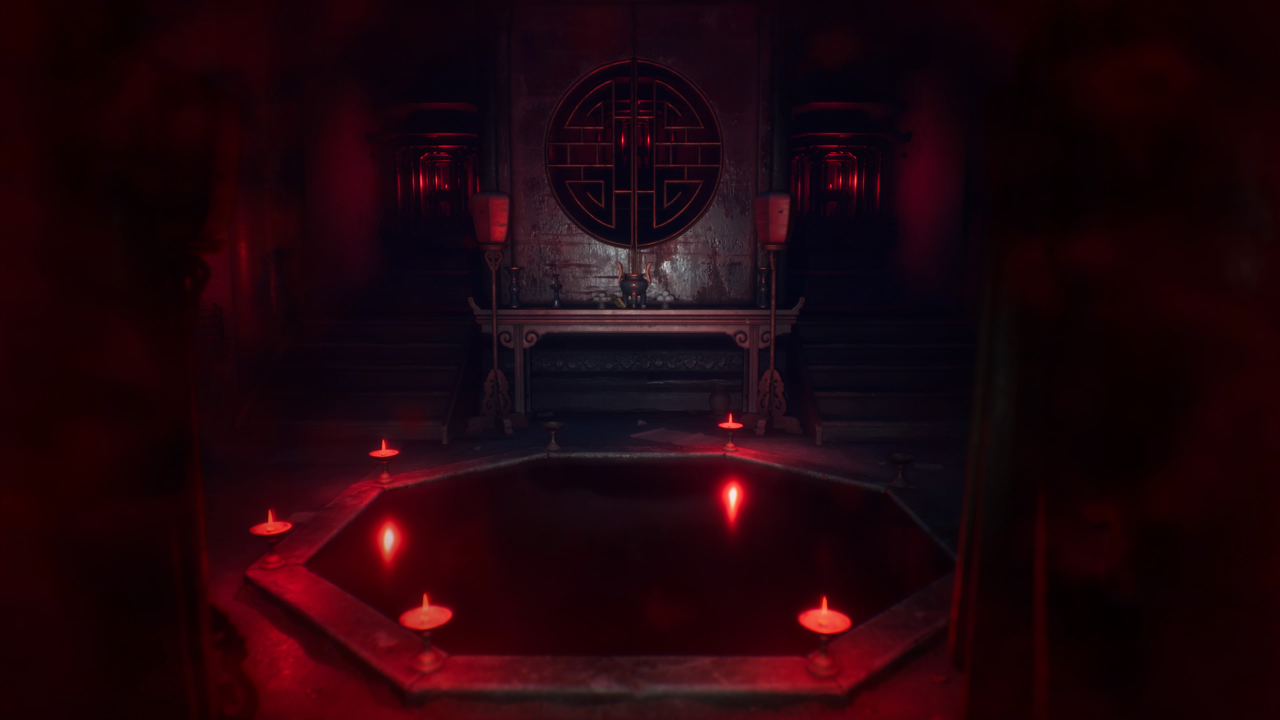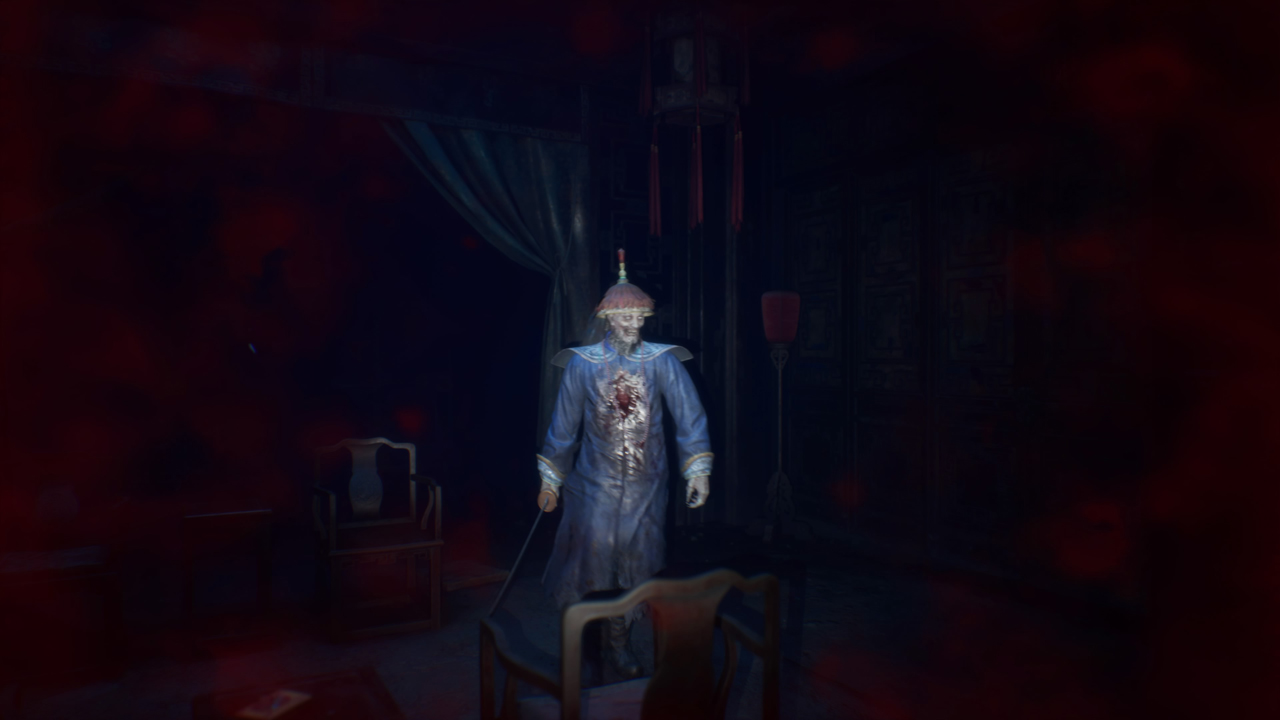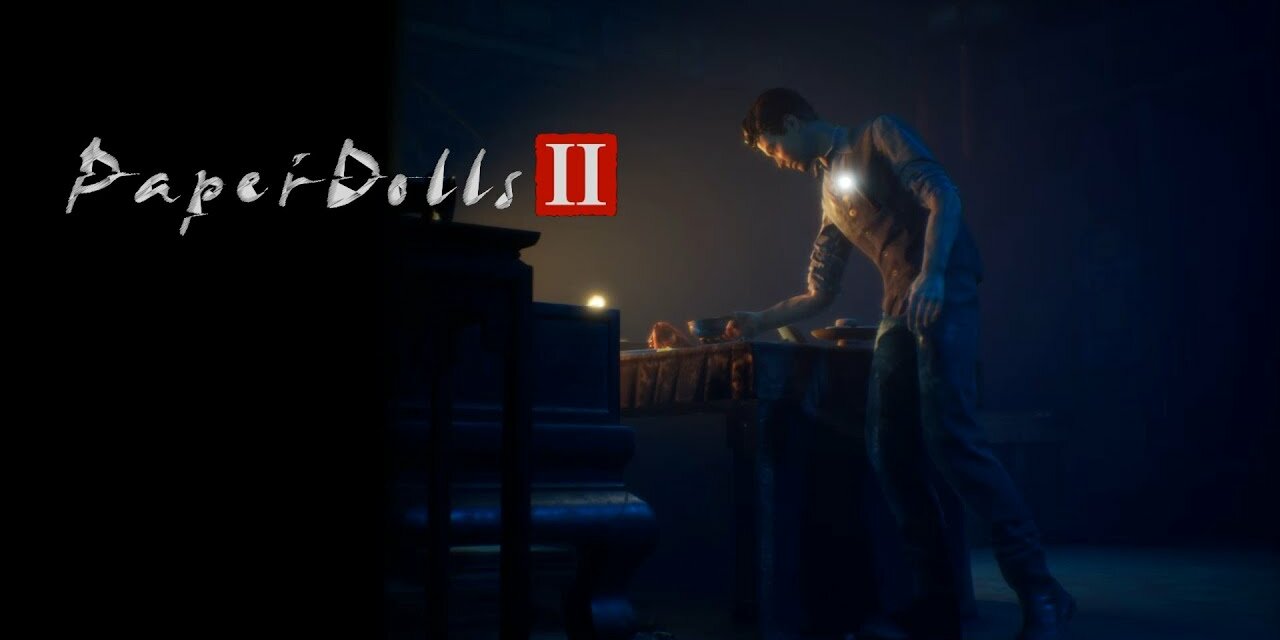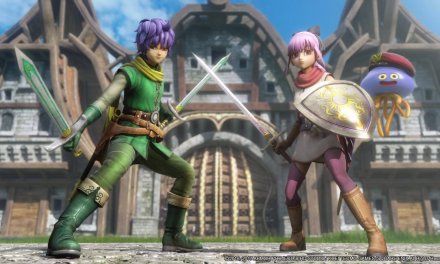“There’s Big Trouble in Little China…”
Following on from its 2019 predecessor: Paper Dolls: Original, Paper Dolls 2 follows everyman: Yang Ming Yuan as he continues the exploration for his missing daughter in the silent, foreboding halls of the Yin mansion. Featuring more grand scenes, more detailed plot animations and more challenging gameplay, Paper Dolls 2 is a noticeable improvement on its predecessor, while still retaining the tense, atmospheric gameplay of the original game. Having released for the PlayStation 4 & 5 on the 25th January 2022, I’ll be covering the latter version, going over the good, the bad, and ultimately discussing whether it’s worth the £15.99 asking price.
If the last two years have given us anything, it’s an overwhelming amount of free time; some people have learnt a new hobby, some have gotten into shape etc. while I have done exactly what I’ve spent the last 30 years (give or take) doing; eating far too much junk food and binge watching horror films to the point where my better half has probably contemplated Matricide on a number of occasions. While I’ve watched a number of films over the last two years, I’ve developed a bit of a low-key obsession for Asian horror movies; the likes of 2016’s excellent (yet morbidly topical) The Wailing from director Na Hong-Jin, or 2010’s I Saw The Devil by Kim Jee-woon, are two that stand out as personal favourites. Asian horror is so potently effective as it tends to deal with the supernatural and human psyche in tandem while simultaneously grounding itself in the culture its situated in. Such is the case with Beijing Litchi Culture Media and their follow-up to their 2019 cult horror title: Paper Hearts: Original, with Paper Hearts 2; following the similar spooky first-person gameplay style of the first game which is richly steeped in Chinese mythology. The game places you in the shoes of everyman: Yang Ming Yuan, who is searching for his missing daughter following a car accident in the Qing dynasty mansion, that once belonged to the prolific Yin family. Paper Hearts 2 follows directly on from the first, following Yang as he explores the second and third floors, while also simultaneously uncovering what happened to the lord and lady of the dilapidated mansion.
The narrative of Paper Dolls 2 is one its biggest selling points, but comes across a bit disjointed between segments of haunting flashback audio ques that deliver plot details regarding the fates of the former inhabitants of the mansion, alongside atypical environmental storytelling comprised of written notes and diary entries, that all build towards identifying the spirits that stalk you through the mansion’s dark corridors, as well as the means to put them to rest. While the game has a solid premise, it’s difficult to get stuck during puzzles and certain sequences due to the nature of the game’s puzzles being not only quite obscure, but the solutions to working them out are made all the vaguer due to the state of the English localisation (which definitely needs work) as some of the written notes and diary files are laden with grammatical errors that make things confusing. One particular reoccurring puzzle is the compass (that gets upgraded throughout the game) which requires to be used in conjunction with the blood of ghosts to open doors to areas that were previously off-limits; while it seems simple in principle, the actual mechanics of it all aren’t really explained all that clearly, which is primarily caused to the aforementioned localisation issues. It’s also worth noting that the game is entirely voiced in Cantonese, which for me personally made the game feel more authentic in place of a low-budget English voiceover that a lot of Eastern media tends to opt for in regards to a western audience (though these matters can boil down to a personal preference).

Gameplay-wise, fans of survival-horror (Resident Evil 7 in particular) will feel right at home, as the gameplay style is a very familiar framework to some of the best in the genre. Elements such as limited resources, backtracking and obscure puzzles are present here. In terms of defence, knowledge of the mansion layout is your best friend (as well as save rooms) and some times your best method of defence is backtracking to a save room which causes the spirits to disappear. Other methods include a ceremonial dagger called a Phurba which can be used to precisely time-block enemy attacks, as well as a black-powder pistol (albeit with limited ammo) to target weak-spots which causes spirits to flee. The unpredictability of the enemy spawns is also of note; while random, it can either be tense or frustrating depending on what you’re doing. During a particularly difficult puzzle, the constant back-thought of an enemy appearing can heighten the tension twofold, but having to constantly go back to a save room due to an enemy that wont shift from the top of the stairs can be more annoying that dread-inducing. The mansion itself is largely the creepiest part of the game, as it can feel like a literal labyrinth when you first start, and isn’t helped by the fact that you have to piece the maps for the different floors together by searching your environment for the various pieces, and even then you won’t know your position, forcing you to learn the layout fast if you want to survive. The game’s environments can look a bit samey throughout, but standout sections look pretty solid due to the developers’ solid attempt at photorealism.
While the core gameplay loop is solid enough, it’s definitely lacking polish that does detract from the experience (in some pretty major ways). For starters the game is exceedingly buggy on PlayStation 5, offering a less than stable 30fps that stutters alongside texture popping and sound cuts that can be jarring after a while. In terms of resolution, it’s hard to get any information but from eye value it definitely seems like 1080p compared to the crisp visuals that 4K HDR offers. Another point of contestation is the speed at which Yang traverses his environment, in that he moves with the readiness of a blind pensioner with two fake hips and has the lung capacity to match as he can sprint (using the word lightly) for all of 2 seconds before he’s gasping for air like he’s just ran a triathlon. There are also a number of QTE’s sporadically thrown into the mix that feel a bit shoe-horned in, and the game has a real issue of auto-saving before unskippable cutscenes that precede a chase sequence or boss-fight, which makes the act of restarting a real chore if you find a particularly difficult section to pass. The cherry on the cake however is the presence of some game breaking bugs that prevent you from making any further progress; one of which occurred for me about 6 hours into the game’s 10-hour campaign with a bunch of ghostly arms preventing access to an area I needed to go through to advance the story, forcing me to restart the game from the beginning (confirmed by watching a walkthrough of the PC version, those arms shouldn’t have been there).

Overall Paper Dolls 2 is a modest attempt at survival horror which is steeped in eastern mythology, raising the spook factor across the board. While not the scariest game out there, the game offers a tense, 10-hour affair that will be a rewarding jaunt for fans of the genre, doubly so if you’re a fan of Asian horror. The base game comes in at £15.99, with a gold edition (featuring a digital soundtrack and art-book) for £28.99. While the added extras are there for those that enjoy that sort of thing, the price for the base game is a modest ask for what’s on offer, just wait for it to be patched.
A PlayStation 5 review code was provided by Winking Corporation.







